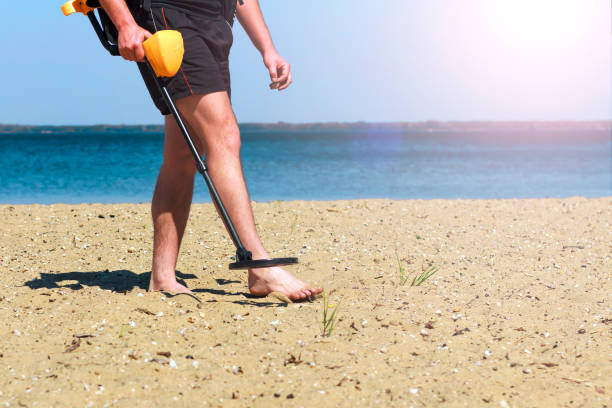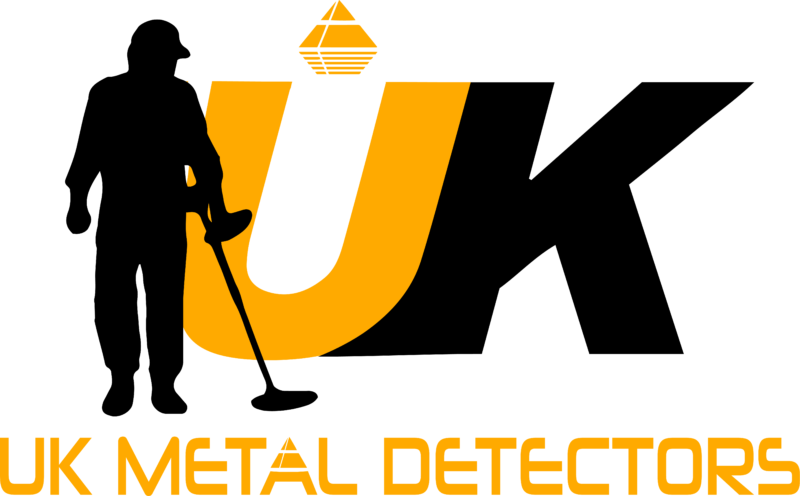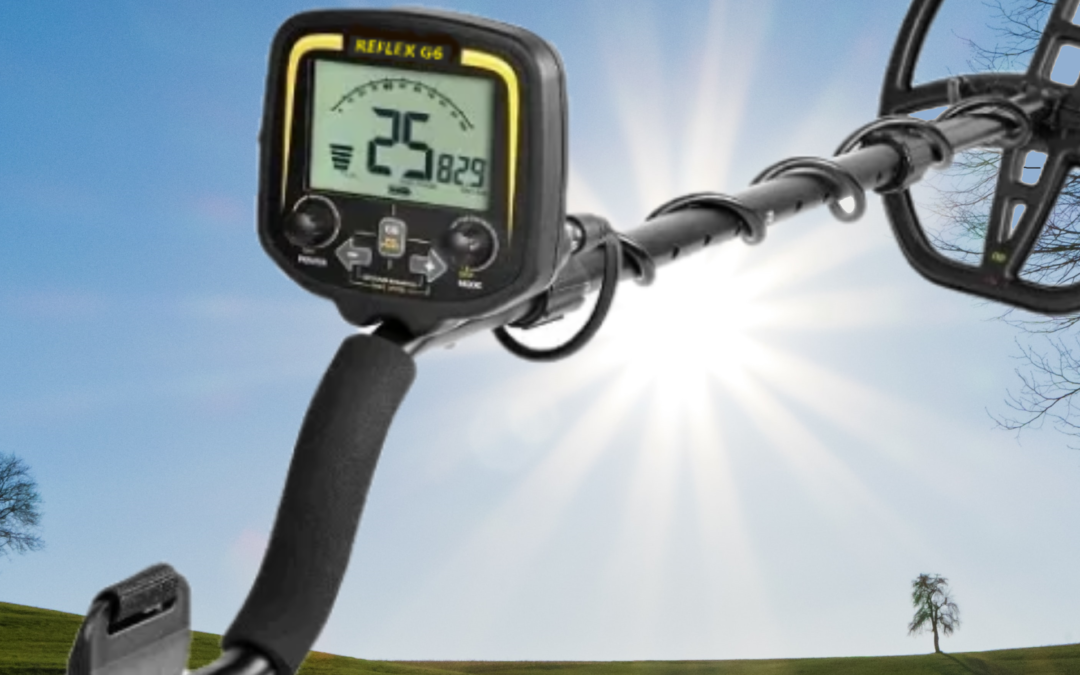Choosing your 1st Metal Detector
Some useful tips and information to help you buy a great metal detector.
News update, UK Metal Detectors would like to announce that we are the official UK Distributors for the Golden Mask range of metal detectors!

Price?
First, how much are you able to afford? Will you have to save up some money? Borrow? These factors may affect your price range but not the care with which you must take to make your selection. A standard model can cost anything up to £1000 but it is certainly not necessary to spend that much on a first machine. I would not suggest that you go beyond £300 as an absolute upper limit and many machines will cost considerably less. Do remember, choosing your 1st metal detector however, that generally speaking you can expect to find more with a more expensive machine and therefore recoup the cost more quickly and lessen the risk of becoming bored. It also has a better resale value if you decide this is not the hobby for you. On the other hand, a cheap machine has to find less to pay for itself and your later finds will enable you to trade up to a more expensive machine when you are ready, many a successful treasure hunter has done just that. Some dealers may even be able to offer you a good second-hand machine but be careful as I have bought second hand only to find the detector had an intermittent fault.
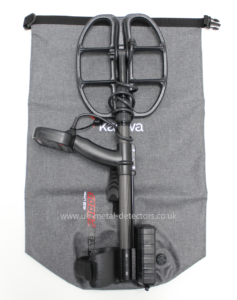
Where will you metal detect?
What type of land are you most likely to be searching? Will it be beaches, farmland or open moorland for instance?
After considering these questions, the next step is to read some of our blog posts some of which have reviews on detectors and how to use them. This will give you details of the latest developments and their advantages. But because sometimes it is easy to be confused by an enthusiastic salesman who may only want to sell you not the most suitable machine for you, but the one which gives him the biggest commission, I will set out here the basic terminology.
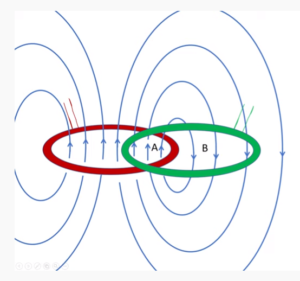
VLF & PI Detectors
VLF Detectors
Very Low Frequency machines (VLF) are designed to counteract the effect of ground conditions and make discrimination easier. They are extremely sensitive to iron. There is a whole range of machines available, most with discrimination. Their performance differs widely however, and they are being updated at regular intervals, so buying the latest model will ensure the latest technology.
Pulse Induction Detectors
Pulse Induction machines are without doubt the most sensitive and deep seeking of machines. However, their very sensitivity renders them unsuitable for general treasure hunting, particularly for the beginner. As usual there are two sides to the question: if your interest is primarily archaeological then you may not mind digging up nails eight inches deep, so this machine could be the one for you. They are certainly highly efficient at tuning out ground effect. I use one myself, but only for beachcombing or when working in conjunction with someone who is using another type of machine.
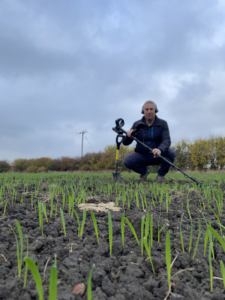
Practice
So, at last you have got your metal detector home. As soon as you can, read the instructions carefully and start practising. It should not take you very long to master the art of the steady, regular search swing and the location of your test objects – coins are probably the most convenient to start with. See if you can estimate the size – or depth if you have the opportunity of burying test objects by the difference in signals. When you are happy with your performance you can start to experiment with the discrimination mode; start by cutting out ordinary bottle tops to get the procedure right, then try silver paper (actually aluminium foil), iron nails, ring-pulls, etc. listen to the signals given by different metals and see if you can tell one from another. Like most hobbies success comes with paractice, metal detecting is no different.
We recommend joining the Association for Metal Detecting Sport – visit their website for more information www.amds.org.uk
Thank you for visiting our website, please come back to read more articles on metal detecting.
HAPPY HUNTING!
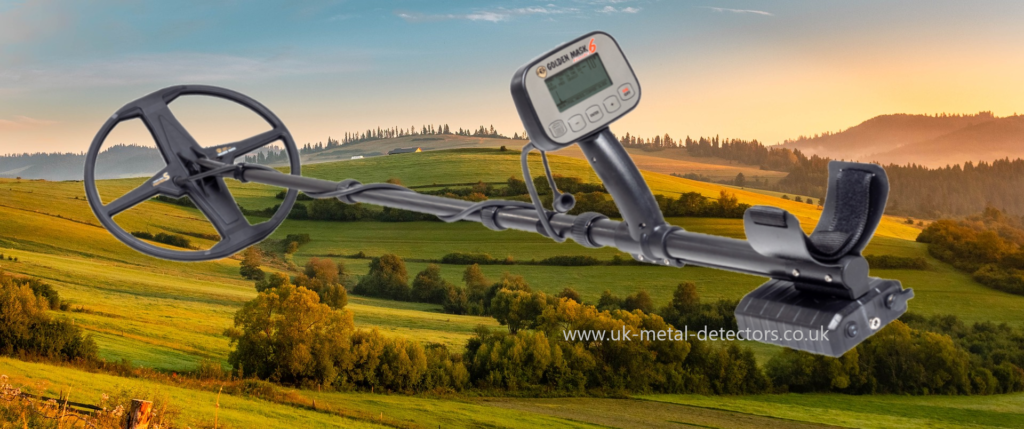
Question?
So now you are convinced that metal detecting is the hobby for you, and you are all set to seek your fortune. First, however, you must actually acquire the instrument of your fortune – Choosing your 1st Metal Detector – An efficient Metal Detector! Initially the diversity of choice can seem thoroughly confusing, so before you rush out to buy, it is worth sitting down and asking yourself a few essential questions.
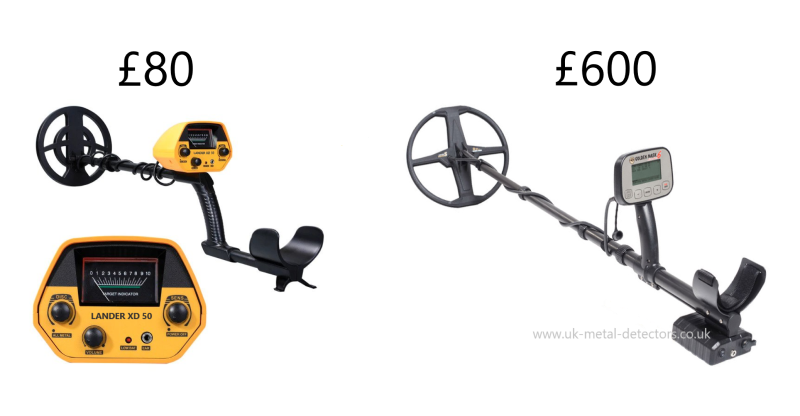
Other things to consider
Other things you must think about are: how you intend to transport your machine – has it got to collapse down to go in a bag if travelling on a train or aeroplane? When choosing your 1st metal detector weight is also something to consider, if the machine is heavy and not well balanced this can cause considerable fatigue out in the field after a few hours of detecting. Do you have any special requirements such as the need to plug in a hearing aid? Check the size of the jack socket and buy an adjuster if necessary.

How they work
Metal detectors work by passing a rapidly changing current of electricity through a loop or coil of wire in the search head. The search Head has two coils, a transmitter coil and a receiver coil, The transmitter coil generates a magnetic field, when this field makes contact with the target object it magnifies the metal object which causes an interference in this field which is relayed back to the control box where the electronics analyse and filter the signal.
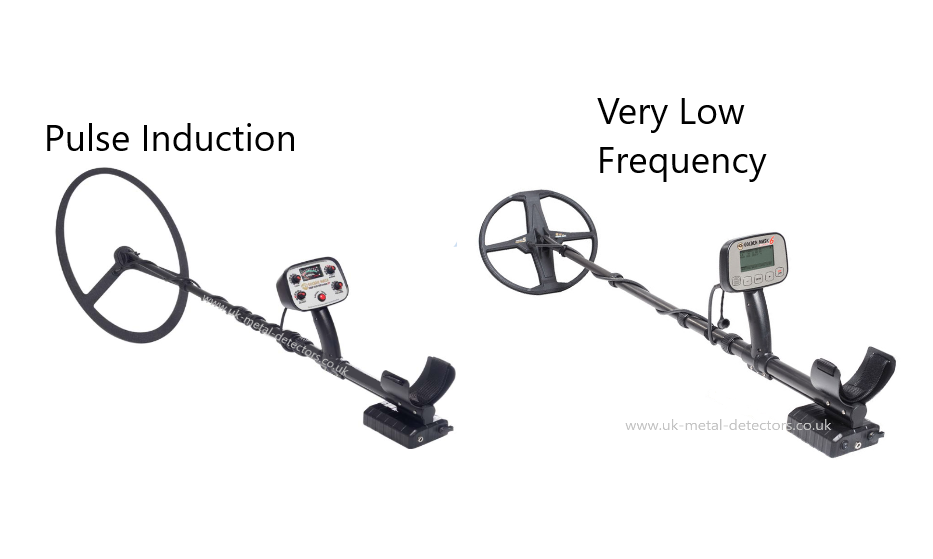
“Mine is the Best”
Human nature being what it is, you will need to make do allowance for the fact that every detectorist is absolutely convinced that theirs is the very best machine on the market.
After what should you buy, your next question is undoubtedly ‘where shall I buy?’ Detectors can be purchased from a number of different outlets, so the best advice is buy from a well-established dealer such as UK METAL DETECTORS, they have many years’ experience selling detecting equipment and are keen detectorists themselves.
